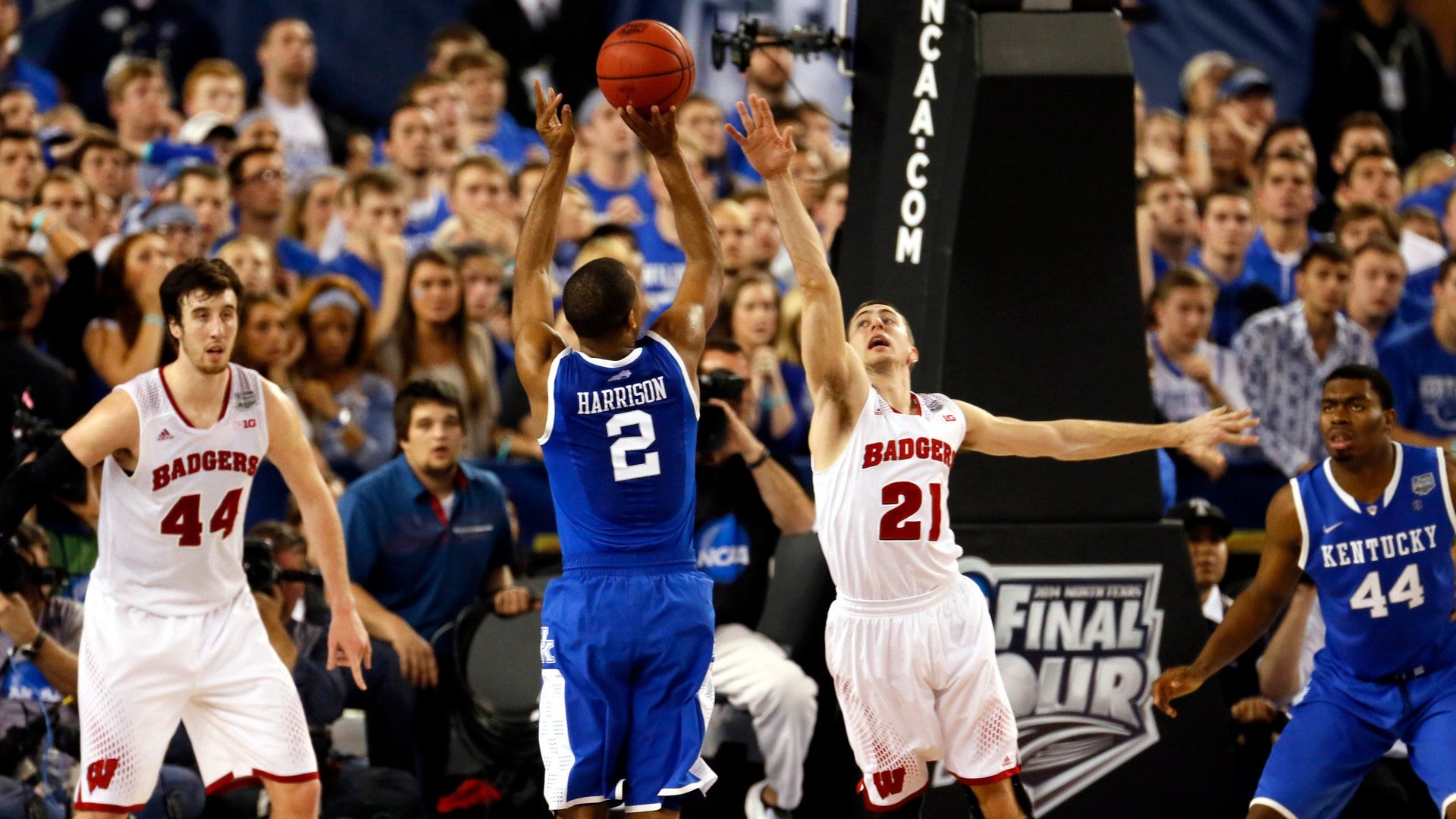This Final Four game-winning shot was worth millions—and why most aren’t
Last night’s last second, game-winning shot was what former basketball executive Tom Penn calls a typical “iconic moment” in an NCAA championship tournament reliably filled with such moments.


Last night’s last second, game-winning shot was what former basketball executive Tom Penn calls a typical “iconic moment” in an NCAA championship tournament reliably filled with such moments.
It’s the kind of action and unpredictability that has made the ostensibly amateur competition held each spring by the best college basketball teams more lucrative than any US sports event other than the Super Bowl, according to the latest ad rate analysis by Kanter Media.
And it could mean millions of dollars for Aaron Harrison, the University of Kentucky guard who took the shot: He’s now likely to enter the NBA draft and be chosen in round one, despite what had been a somewhat disappointing year for both Harrison and his teammates until the tournament. It also provides a Cinderella storyline leading up to Monday night’s championship final between the Wildcats and Connecticut.
But in a purely economic sense, Harrison’s buzzer beater and career-defining tournament is increasingly unusual, according to Penn, a basketball operations analyst for ESPN and former Portland Trailblazers vice president. Thanks to pro basketball’s development of sophisticated player-tracking and evaluation systems, tournament performance is almost never a surprise, or at least not enough to move a player’s draft position or market value much.
One big factor is the ready availability of complete statistical profiles of players and games from Synergy Sports Technology.
“With all the scouting and the data, it’s mostly just a myth that a deep run in the tournament can enhance your value significantly in most cases,” said NBADraftBlog.com’s Ed Isaacson, an analyst and “cap-ologist” for NBC’s ProBasketballTalk. “The NBA teams don’t need to watch the tournament. They can just pull it up on their desktops.”
And even endorsement deals don’t hinge as often as they once did on March Madness notoriety.
“A player who has a string of iconic moments, or who carries his team deep into the tournament, can put himself in a better position to negotiate endorsement deals,” said Penn, an ESPN analyst and former executive with the Portland Trail Blazers and Memphis Grizzlies. “But in general these kinds of players are already well known. The GMs, the coaches, the marketing people aren’t over-impressed with exceptional performance or dissuaded by poor performance. The tournament is just one more factor.”
After a disappointing first season, Harrison’s tournament has made it likely he’ll be able to enter the NBA draft and be chosen in the first round—where NBA guidelines guarantee that most picks will sign for at least $1 million in salary. Before his tournament successes, which included game winning shots against Michigan and Louisville, a number of experts questioned whether Harrison and his brother, Andrew, were ready for the pros.
“I fully expect them both to go now,” said Isaacson. But the tournament-driven change in Aaron Harrison’s prospects is uncommon, he added—pointing to Andrew Wiggins, one of this year’s tournament disappointments. The Kansas University star came up short with just four points in his team’s loss to Stanford. According to Isaacson, his bad game probably won’t affect his value much given his career up until now. He’ll still be one of the first players picked, and qualify for a rookie salary in the millions.